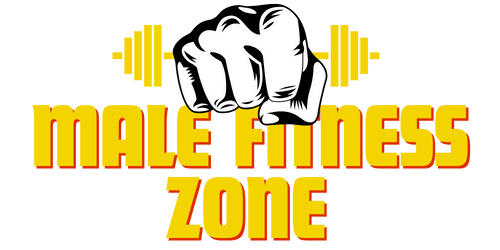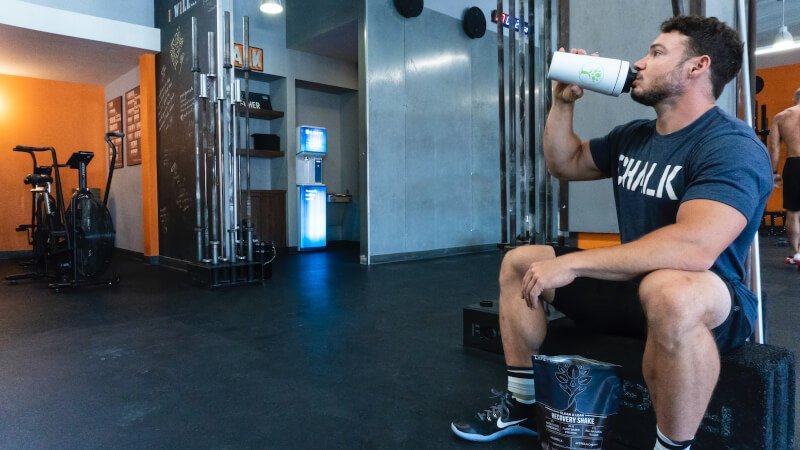Are you looking to optimize your performance during your workouts? Well, look no further, because we have got the inside scoop on the best pre-workout foods to fuel your body. With so many options out there, it can be overwhelming to choose the right foods to nourish your muscles and give you that extra boost of energy. But fear not, we’ve done the research for you and have narrowed down the top contenders. From nutrient-packed fruits to protein-rich snacks, we’ve got all the delicious options that will help you crush your fitness goals. So, grab a pen and paper, and get ready to upgrade your pre-workout routine with these fantastic food choices.
Why is pre-workout nutrition important?
Pre-workout nutrition plays a key role in fueling your body for optimal performance, enhancing energy levels, and improving endurance and stamina during your workout routine. By consuming the right combination of nutrients, you can optimize your performance and achieve your fitness goals more effectively.
Fueling your body for optimal performance
Fueling your body with the right nutrients before a workout is crucial for ensuring you have enough energy to perform your best. When you exercise, your body relies on carbohydrates as its primary source of fuel. Carbohydrates provide the energy needed to power through intense workouts and keep fatigue at bay.
The role of carbohydrates in pre-workout nutrition
Carbohydrates are essential for providing the energy required for physical activity. They are the body’s preferred source of fuel and are necessary for maintaining blood glucose levels during a workout. Consuming carbohydrates before exercising can help improve your performance, as it provides a readily available energy source for muscles to contract efficiently.
Fiber-rich, slow-digesting carbohydrates
Choosing fiber-rich, slow-digesting carbohydrates for your pre-workout meal or snack can provide a sustained release of energy throughout your workout. Foods like whole grains, such as brown rice, quinoa, and oats, are excellent choices. These complex carbohydrates take longer to break down and offer a steady supply of energy, avoiding sudden spikes and crashes in blood sugar levels.
Fast-digesting carbohydrates for quick energy
On the other hand, fast-digesting carbohydrates can be beneficial when you need a quick energy boost before a workout. Foods like bananas, white rice, or white bread are easily digested and provide a rapid rise in glucose levels, giving you an instant burst of energy to kick-start your workout.

Protein for muscle repair and growth
Protein is an essential nutrient for muscle repair and growth. Including protein in your pre-workout nutrition routine can help protect your muscle mass and support recovery after exercise.
The importance of protein for pre-workout nutrition
Protein is made up of amino acids, which are the building blocks of muscle tissue. Consuming protein before your workout can help initiate protein synthesis, which is crucial for repairing and building muscles. By providing your body with adequate protein before exercise, you can optimize muscle recovery and prevent muscle breakdown.
Complete protein sources
Complete protein sources contain all nine essential amino acids that our bodies cannot produce on their own. Animal-based protein sources, such as lean meats, poultry, fish, and dairy products, are excellent options for pre-workout protein intake. These sources provide high-quality protein and essential nutrients needed to support muscle repair and growth.
Plant-based protein options
For those following a plant-based or vegetarian diet, there are plenty of plant-based protein options to choose from. Foods like beans, lentils, tofu, tempeh, edamame, and quinoa offer a good amount of protein. Additionally, plant-based protein powders, such as pea protein, rice protein, or hemp protein, can be convenient options for a quick and easy pre-workout protein source.
Balancing macronutrients
Finding the right balance of carbohydrates, protein, and fat is essential for effective pre-workout nutrition. Each macronutrient plays a specific role in providing energy, supporting muscle growth, and maintaining overall health.
Determining individual macronutrient needs
The optimal ratio of carbohydrates, protein, and fat for pre-workout nutrition can vary depending on an individual’s goals, activity level, and overall calorie needs. It is beneficial to consult with a registered dietitian or sports nutritionist to determine your specific macronutrient needs based on your body composition and fitness goals.

Hydration and electrolytes
Proper hydration is crucial for pre-workout nutrition as it affects athletic performance, energy levels, and overall wellbeing. Additionally, electrolytes play a vital role in maintaining fluid balance and supporting muscle function.
The significance of proper hydration for pre-workout
Adequate hydration is essential before a workout to optimize performance and prevent dehydration, which can lead to decreased athletic performance and impaired cognitive function. Staying hydrated helps regulate body temperature, transport nutrients, and remove waste products from cells, all of which are necessary for optimal physical performance.
Electrolytes and their role in performance
Electrolytes, such as sodium, potassium, calcium, and magnesium, are minerals that help maintain proper fluid balance, muscle contractions, and nerve function. When you sweat during exercise, you lose electrolytes, which need to be replenished to prevent muscle cramps, fatigue, and electrolyte imbalances. Including electrolyte-rich foods, such as bananas, coconut water, and sports drinks, can be beneficial in replenishing these vital minerals.
Options for pre-workout foods
Choosing the right pre-workout foods can make a significant difference in your performance and overall workout experience. Here are some excellent options to consider:
Whole grains and fruits
Whole grains like brown rice, quinoa, oats, or whole wheat bread provide a steady release of energy due to their complex carbohydrate content. Pairing them with fruits, such as bananas or berries, adds natural sugars and additional vitamins and minerals to your pre-workout meal.
Lean proteins
Lean proteins, such as grilled chicken, turkey, fish, cottage cheese, or Greek yogurt, are great sources of high-quality protein. They provide essential amino acids for muscle repair and growth and can also help keep you feeling full and satisfied during your workout.
Healthy fats for sustained energy
Incorporating healthy fats into your pre-workout meal can help sustain your energy levels throughout your workout. Foods like avocados, nuts, nut butter, or chia seeds are rich in healthy fats and can provide a slow and steady release of energy.
Timing and portion control
Knowing when and how much to eat before a workout is crucial to maximize the benefits of pre-workout nutrition.
When to eat before a workout
It’s recommended to consume a balanced meal or snack containing carbohydrates and protein 2-3 hours before your workout. This timing allows for proper digestion and ensures that your body has enough fuel to sustain your physical activity. However, if you have less time, consuming a smaller snack containing a mix of carbohydrates and protein around 30-60 minutes before your workout can still provide you with valuable energy.
How much to eat for optimal fueling
The amount of food you should eat before a workout depends on various factors, such as your age, gender, body weight, activity level, and personal preferences. It’s essential to find the right balance and portion size that works best for you. Experimenting with different amounts and listening to your body’s hunger and fullness cues can help you determine the optimal fueling for your workouts.
Pre-workout supplements
Pre-workout supplements are products that are designed to enhance performance, energy, and focus during exercise. These supplements can come in various forms, such as powders, capsules, or energy drinks.
Understanding the role of supplements
While pre-workout supplements can be beneficial for some individuals, they are not necessary for everyone. They typically contain ingredients like caffeine, B-vitamins, creatine, and amino acids, which can help increase energy, focus, and endurance. However, it’s important to use supplements responsibly, follow dosing instructions, and consult with a healthcare professional before adding them to your routine.
Caffeine and its effect on performance
Caffeine, a common ingredient in pre-workout supplements, has been shown to improve athletic performance and increase alertness. It can enhance endurance, reduce perceived exertion, and boost fat burning during exercise. However, it’s important to bear in mind that caffeine affects individuals differently, and some people may be more sensitive to its stimulant effects.
Food combinations to avoid
While there are many great options for pre-workout nutrition, some food combinations should be avoided before a workout. These can cause digestive discomfort and affect your performance negatively.
Foods that may cause digestive discomfort
Certain foods, such as high-fiber or spicy foods, can cause gastrointestinal distress during exercise. These foods can lead to bloating, gas, or an upset stomach. It’s essential to pay attention to how your body reacts to different foods and avoid any that cause discomfort before your workouts.
Highly processed and sugary snacks
Highly processed snacks, including sugary foods and drinks, may provide a quick energy boost, but they often lead to a crash in energy levels shortly after consumption. These foods lack sufficient nutrients and may not sustain your energy throughout your workout. Opting for whole, unprocessed foods is generally a better choice for fueling your body effectively.
Individual preferences and dietary restrictions
Considering your personal food preferences and any dietary restrictions you may have is essential when planning your pre-workout nutrition.
Considering personal food preferences
Everyone has different food preferences, and it’s essential to find pre-workout foods that you enjoy and that work well with your palate. Experimenting with different flavors, textures, and recipes can help make your pre-workout meals and snacks more enjoyable.
Adapting pre-workout nutrition for dietary restrictions
For those with dietary restrictions, such as allergies, intolerances, or specific dietary choices (vegan, vegetarian, gluten-free, etc.), it’s important to find alternative food options that meet your needs. Fortunately, there are plenty of alternatives and substitutions available to ensure that you can still obtain the necessary nutrients and fuel your body effectively before a workout.
In conclusion, pre-workout nutrition is crucial for optimizing your performance, enhancing energy levels, and improving endurance and stamina. By fueling your body with the right combination of carbohydrates, protein, healthy fats, and staying hydrated, you can maximize the benefits of your workouts and achieve your fitness goals more efficiently. Remember to consider your individual needs, preferences, and any dietary restrictions when planning your pre-workout meals and snacks.


